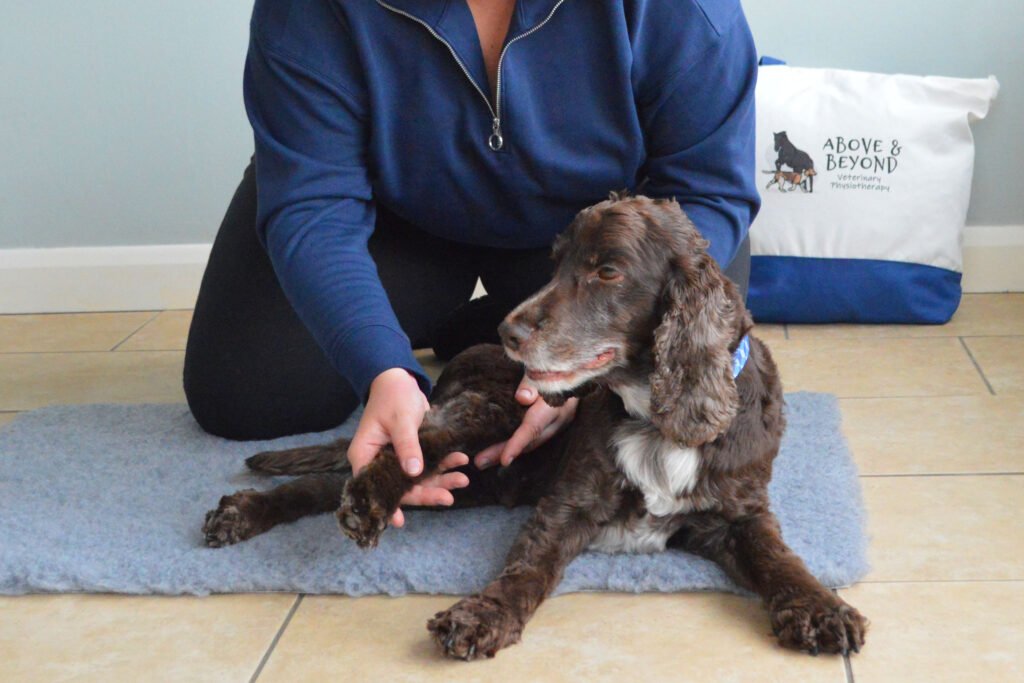Physiotherapy
What Is Veterinary Physiotherapy
Veterinary Physiotherapy involves the assessment and treatment of musculoskeletal and neurological conditions in animals. It helps identify potential problems with the aid of movement analysis and knowledge of the neuro-muscular system.
The CS Hydro Physio’s physiotherapists are highly trained to assess and treat a wide range of pathologies and are specialists in tailoring physiotherapy treatment programmes to the individual animal.
Animals, like people, respond well to Physiotherapy and it could be used following a trauma, injury, recent surgery, or it could be considered for a working or athletic animal to help them develop to their full potential and avoid injury problems.
Our Veterinary Physiotherapists are experts in the release of muscle spasm and in the mobilisation of joints to gain pain relief and restoration of normal movement patterns. We use manual techniques such as joint mobilisations and manipulations, massage and other soft tissue techniques.


What Techniques Constitute As Physiotherapy?
- Manual techniques: such as joint mobilisation, massage, myofascial/soft tissue release and stretches
- Cryotherapy (Cold), Thermotherapy (Hot) to assist with swelling and spasm respectively
- Rehabilitation programmes: such as proprioceptive re-training programmes involving poles, gradients, altered surfaces and sensory input.
- Soft tissue release techniques: using deep massage, myofascial release, trigger point release and acupressure
- Exercise prescription: which includes home exercise, strengthening exercises, core stability exercises, proprioceptive exercises
- Advice and education regarding the condition, treatment protocol, exercise environment and rehabilitation programme
What Conditions Could Benefit From Physiotherapy
Canine Physiotherapy treatments have a whole variety of uses including, but not limited to:
- Congenital and Orthopaedic conditions: Many dogs suffer from congenital conditions such as hip and elbow dysplasia Physiotherapy can help with pain relief and provide exercise and rehabilitation programmes to restore and maintain normal movement and function. Physiotherapy can greatly enhance recovery from common orthopaedic conditions such as cranial cruciate ligament rupture
- After surgery: Early physiotherapy intervention following orthopaedic or neurological surgery in the dog is indicated to enhance recovery. Ongoing rehabilitation following surgery has been shown to be beneficial to restore normal function
- The older dog: Arthritis is a very common condition in dogs. Physiotherapy can help with pain relief, joint stiffness and muscle wasting to improve movement and quality of life in the older dog
- Neurological Problems: Physiotherapy can help in the rehabilitation of animals with Neurological problem such as disc disease whether a conservative or surgical approach is decided on. Treatment protocols include the management of pain, prevention of muscle atrophy and the restoration of normal gait patterns and exercise programmes
- The injured dog: Many dogs suffer from fractures, soft tissue and other injuries following car accidents, falls and other traumas. Physiotherapy is used to reduce pain, enhance healing and restore the dog’s normal movement and function following injury
- The elite athlete: Through prevention and treatment if pain and injury, physiotherapy can help achieve and maintain optimal performance in these animals

